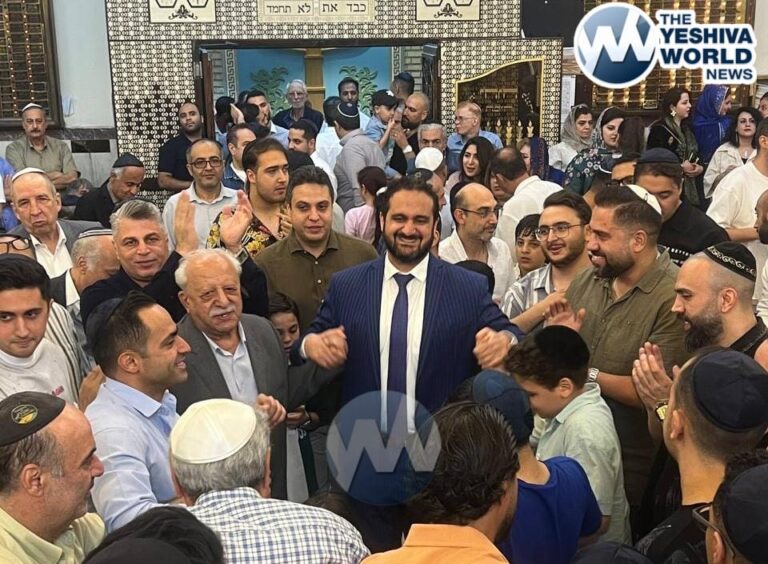The Jewish world has yearned and waited. We prayed and waited. We cried in sorrow and pain while we waited. Our brethren—Jewish men, women, and children—were taken into the mayim sh’ain lahem sof, the bottomless depths of serpentine tunnels and hidden chambers, unheard of, unseeable, and unreachable. The only thing within reach was our siddurim and Tehillim, and so many, many of us turned to Shomayim with hope against hope.
And now, this.
There is a word for this in English: crestfallen. For some of us, our religious honor as Benei Yisroel has fallen. We felt helpless before this tragic turn, and we feel isolated now. The rest of humanity—whatever term we might use to represent those who abandoned us during this time—will move on. Meanwhile, it is natural, in these most unnatural of times, to hurt, to ache, and to be intensely saddened.
The realization that we have lost our precious ones, who suffered for 500 days and more, will dawn on some of us sooner, for others later. Those small, smiling faces will remain seared in our memories for months to come as our hearts grapple with their fate—and with the futures of those who loved them and agonized over them.
This is a turn of events we will not be able to conceal from our families. It is being widely broadcast, spoken about, and even celebrated by some of the manic mobs who encouraged terror and genocide—applauding each atrocity as if it were mere entertainment. For some, it was little more than another morbid game; for others, it was the epitome of their religious zeal—a perverse joy among those who dream of driving us, or voting us, into the sea and beyond.
What we say to our inquisitive and confused children will become clearer only after we, as adults, speak to each other first. It is fully expected that Jews will have many different reactions. Some will feel the intensity deep within their bodies—as nausea, tension, disturbed sleep, or even physical pain. Others will feel it in their emotions—a depressed mood, sudden irritability, restless anxiety, or fear. Some will process it in their minds—through obsessive thoughts, overwhelming worry, haunting images, or fragmented concentration. A few will find themselves changing behaviors in response.
As adults, we must be mindful of these reactions, recognize them within ourselves, and find a supportive person to confide in—someone we trust, who cares about us. Speak out. Express your feelings. Know what you are experiencing. And when someone else shares with you, listen. Do not judge, do not offer quick fixes, do not interrogate. Just listen. This is how we begin to re-regulate our emotions and return to functioning.
Only then can we guide our children through their own processing. When we have sorted through our own reactions, we will have the patience and clarity to hear our children’s concerns without clouding them with our own inner turmoil. Listen to them. Let them speak. Validate their fears and confusion. Reassure them that their emotions are a normal reaction to an abnormal, horrific reality.
Avoid gruesome images; do not let the dinner table or bedtime become the place for processing terror. Stick to your normal family routines, ensure your home remains a place of warmth, stability, and spiritual connection.
Our nation is brave and dedicated, yet crestfallen. There is also a word in Lashon HaKodesh—charada. It is not fear. Think of the term chareidim—they are not described as fearful people. Our Sages explain that charada is a state of pained wonderment and awe—a moment of utter shock, when one says:
“I do not understand what has happened nor why, and I cannot see where it will lead.”
Charada is what we feel when events do not go the way we planned or hoped, yet amidst the shock, we accept that there is more at play than what we can see.
And from this horror, we will emerge.
Eis tzara hi l’Yaakov. Mimena yivashe’ah.
Yishlach l’ketz yamin mashicheinu lifdos me’chackei ketz yishuaso.
Rabbi Dr. Dovid Fox is a forensic and clinical psychologist, and director of Chai Lifeline Crisis Services. To contact Chai Lifeline’s 24-hour helpline, call 855-3-CRISIS or email [email protected]. Learn more at www.chailifeline.org/crisis.












4 Responses
nothing against the Dr or what he wrote
but be aware that my generation grew up by holocaust survivor parents additionally we have witnessed the munich massacare and countless other terror acts
with out any therapies needed
we have to edcuate our children that “eisav sonei leyackov”
period here in galus as well as in israel
its part of being a jew
Thank you for publishing this. May we never need it again.
I just got off an El Al flight ✈️ as recently as 2 days ago:- Every El Al flight during announcements upon landing, there is an impassioned & very strong sentiments for speedy return of every hostage.
The escalator leading to arrival hall & on other side leading to departure hall at בן-גוריון is lined with a pictures 📸 & names of every hostage.
El Al is the best Airline.
YOSSIES, u are right klal yisroel has tools & have been coping for generations, if a tragedy hits a community , school or shul, its is very disarming if you need to bring in an outsider ” to make seder” , becuase the messg is your parents, rav , menaheles dont know what to do or say ,can it be the very people a child relies on for protection are clueless? and does the dr’s have any real answers we dont expect them to. chidushim also not, look at the last ten tragedies its basicly the same points and good points
finally TRAUMA!!! oh yes i call it the LACK of trauma, i watched in camp as a head counselor how too quick things were back to normal , next… the amt of news, full color videos in real time and my bucherim continue eating and talking how high was the bear mtn bridge, oh he shot himself…,